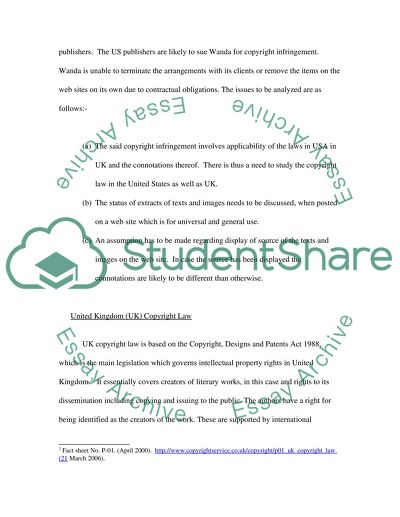Cite this document
(“Copyrights Infringement Case Study Example | Topics and Well Written Essays - 5000 words”, n.d.)
Copyrights Infringement Case Study Example | Topics and Well Written Essays - 5000 words. Retrieved from https://studentshare.org/law/1529675-copyrights-infringement
Copyrights Infringement Case Study Example | Topics and Well Written Essays - 5000 words. Retrieved from https://studentshare.org/law/1529675-copyrights-infringement
(Copyrights Infringement Case Study Example | Topics and Well Written Essays - 5000 Words)
Copyrights Infringement Case Study Example | Topics and Well Written Essays - 5000 Words. https://studentshare.org/law/1529675-copyrights-infringement.
Copyrights Infringement Case Study Example | Topics and Well Written Essays - 5000 Words. https://studentshare.org/law/1529675-copyrights-infringement.
“Copyrights Infringement Case Study Example | Topics and Well Written Essays - 5000 Words”, n.d. https://studentshare.org/law/1529675-copyrights-infringement.


